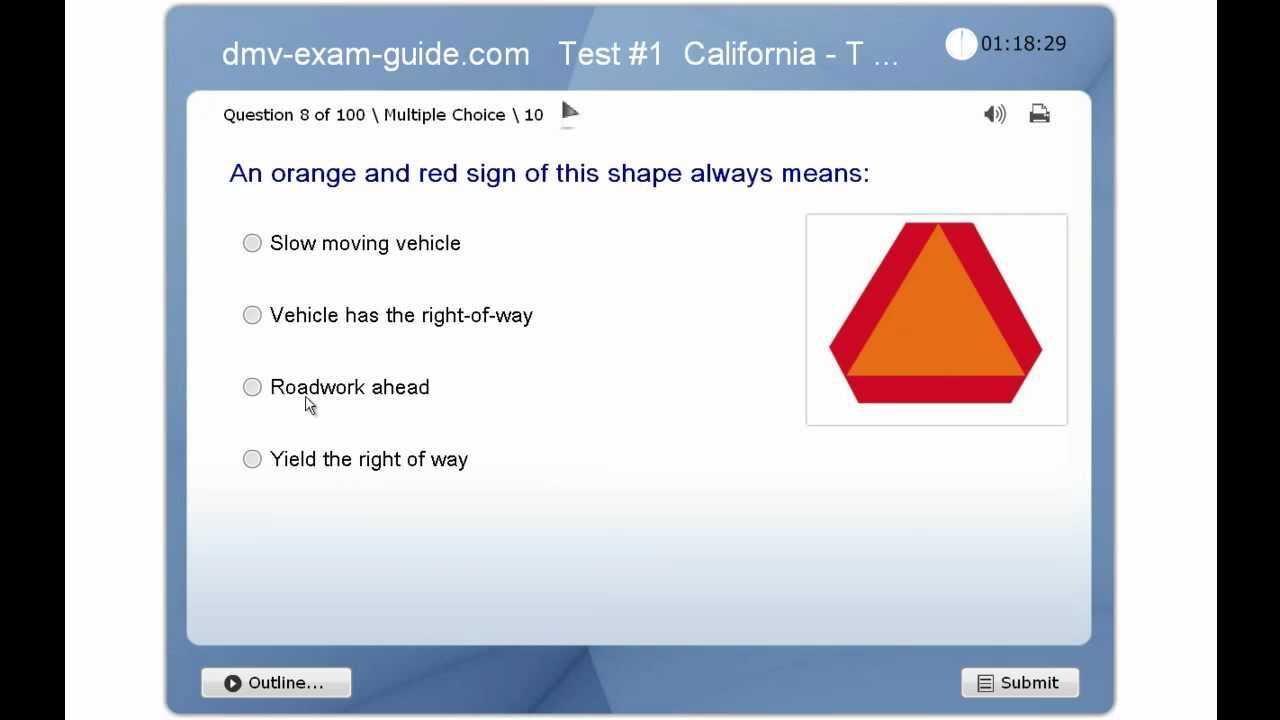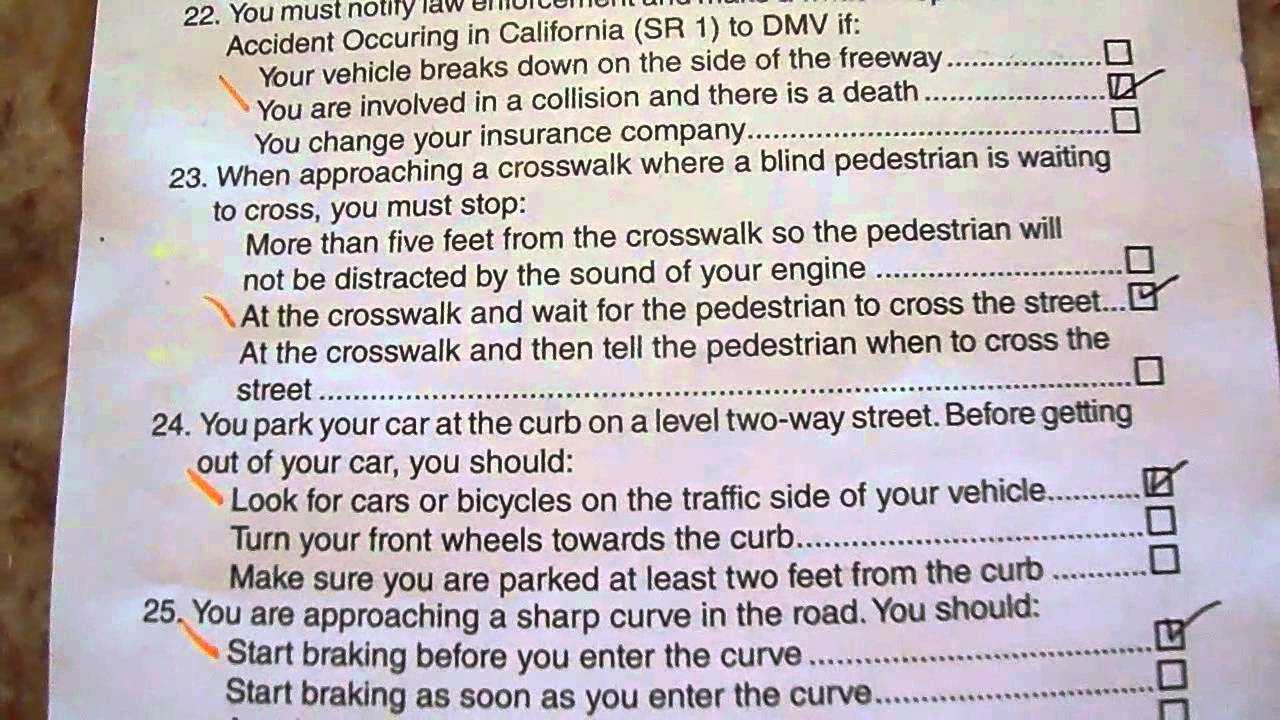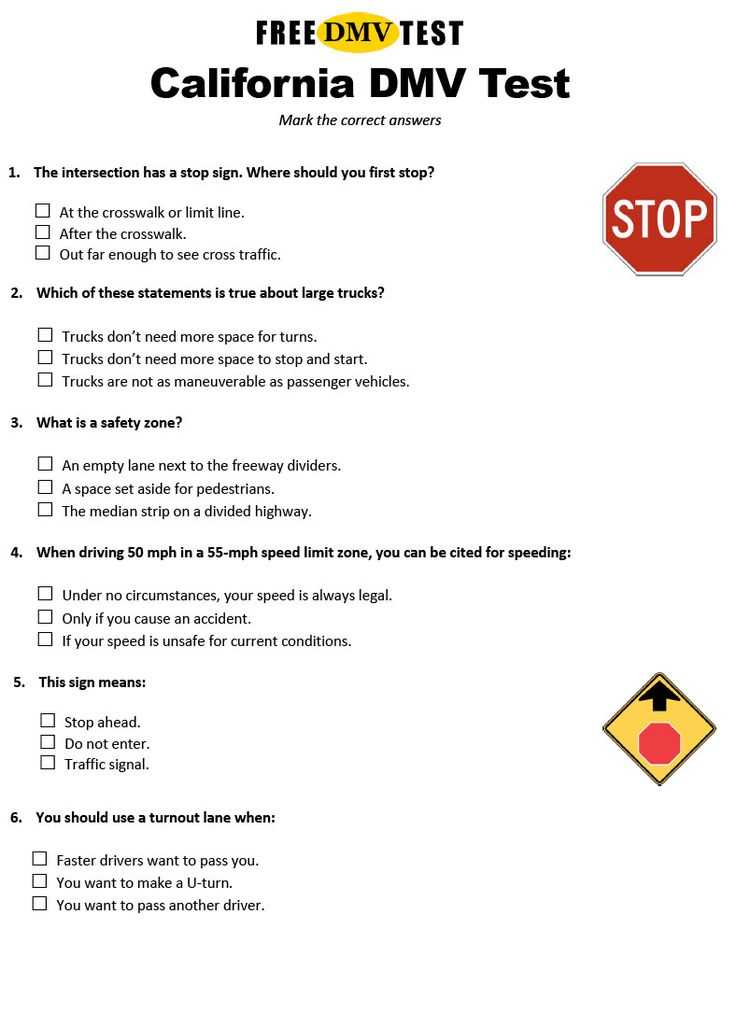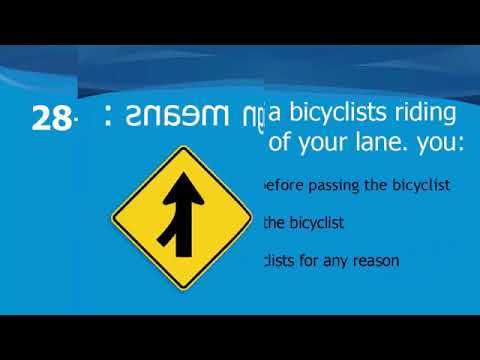
Preparing for a driving exam can be a daunting task, but the right approach can make all the difference. The key to gaining confidence and ensuring success lies in thorough preparation. By familiarizing yourself with the format, common questions, and best strategies, you can improve your chances of passing on the first attempt.
Effective study methods that mimic the real exam conditions can help reinforce your knowledge. Understanding the material is just as important as practicing it. When you engage with the content repeatedly, you build familiarity, which reduces anxiety and enhances your ability to recall important information during the actual evaluation.
In this guide, we will explore useful tools that can help you refine your skills and approach. Whether you’re revising the rules of the road or learning about vehicle safety, being well-prepared is the first step toward achieving success behind the wheel.
Why Practice Tests Are Essential
Preparing for any exam requires more than just reviewing material; it involves applying knowledge in a simulated environment. Engaging with sample questions provides a deeper understanding of the format and structure of the evaluation, allowing individuals to become more familiar with what to expect. This method boosts confidence and sharpens critical thinking, which is essential for success.
Repeating exercises that mirror real-life conditions allows you to identify areas of weakness. When you encounter questions similar to those on the actual assessment, it becomes easier to recognize patterns and adjust your approach accordingly. This proactive strategy enables better performance, as it not only reinforces your knowledge but also builds the necessary skills for tackling difficult scenarios.
Additionally, practicing in a timed setting helps improve speed and accuracy. As you get accustomed to managing time under pressure, you develop the ability to stay calm and make informed decisions quickly, which is crucial in high-stakes situations. Ultimately, practicing regularly is the best way to ensure that you are well-prepared when it’s time to face the real challenge.
Boost Your Confidence Before the Exam
Confidence is a key factor in achieving success when facing any evaluation. The more prepared you are, the less anxiety you’ll experience during the actual challenge. One effective way to build this confidence is by engaging in regular preparation sessions. By thoroughly going through the material and mimicking real exam conditions, you set yourself up for success.
Here are some practical ways to increase your confidence:
- Familiarize yourself with the format: Knowing what to expect on the day of the evaluation will reduce uncertainty and help you feel more in control.
- Practice under time constraints: Simulating the time limits of the actual evaluation helps you manage pressure and ensures you can complete tasks efficiently.
- Review your mistakes: Going over errors helps identify areas of weakness. This allows you to focus your attention on improving these aspects before the final challenge.
- Track your progress: Monitor your improvement as you move through practice exercises. Seeing growth over time will reinforce your belief in your abilities.
By incorporating these strategies into your preparation, you can approach the evaluation with a calm mindset, confident that you are fully equipped to handle any challenge that comes your way.
Key Strategies for Passing the Exam

Successfully passing an evaluation requires more than just understanding the material. It involves adopting specific strategies that can help you perform at your best. From effective study habits to managing your time, applying the right techniques can make a significant difference in your overall performance.
Focus on Understanding, Not Memorizing
While memorization has its place, truly understanding the content is the key to long-term success. Instead of cramming facts, focus on grasping the underlying concepts. This approach allows you to think critically and make informed decisions, even when faced with unexpected questions.
Use Time Wisely

Time management is crucial, especially when faced with a limited window to demonstrate your knowledge. Break down your study sessions into manageable blocks, ensuring that you cover all necessary material while leaving room for review. On the day of the evaluation, prioritize answering questions you are confident about first, then revisit more difficult ones later.
By implementing these strategies, you position yourself for success, not only on the day of the evaluation but throughout your preparation. The right mindset and approach are essential for mastering any challenge.
Maximize Your Study Time Effectively

Efficient use of study time can significantly impact your preparation success. By focusing on key areas, prioritizing tasks, and maintaining a structured schedule, you can optimize your learning without feeling overwhelmed. The goal is to make each study session count, ensuring you cover essential material while also allowing time for review and reflection.
Plan Ahead and Stay Organized
One of the most effective ways to maximize your time is by creating a detailed study plan. Break down the material into smaller sections and allocate specific time slots to each topic. Staying organized helps prevent procrastination and ensures that no area is overlooked. By tackling one concept at a time, you can make steady progress without feeling rushed.
Focus on Active Learning
Rather than passively reviewing notes, engage in active learning techniques. Test your understanding by attempting challenges or summarizing concepts in your own words. Active methods, such as solving problems or discussing topics with others, reinforce the material more effectively than simple reading. This approach helps solidify information and improves long-term retention.
By implementing these strategies, you’ll make the most of your study time, building both knowledge and confidence as you prepare for the upcoming challenge.
What You Need to Know About the Test
Before facing any evaluation, it’s crucial to understand the structure, requirements, and expectations. Knowing what to expect allows you to approach the situation with confidence and clarity. It’s not just about knowing the material, but understanding the format and the type of questions that will be asked. This ensures that you’re well-prepared and can perform your best.
Familiarize Yourself with the Format
The first step in preparation is to understand the format of the challenge. Different evaluations have distinct question types, such as multiple choice or scenario-based questions, and understanding how these are structured helps you approach them effectively. Knowing the time limits, scoring system, and the types of topics covered can make a significant difference on the day of the evaluation.
Focus on Key Areas of Knowledge
While it’s important to review all material, some areas will be emphasized more heavily than others. Make sure to prioritize topics that are frequently tested or have more complex concepts. This strategic focus allows you to allocate time and energy more efficiently, ensuring that you’re ready for the questions that matter most.
By thoroughly understanding the format and key areas of focus, you set yourself up for success. This knowledge allows you to tailor your preparation and approach the evaluation with a clear and confident mindset.
Familiarize Yourself with Common Questions
Understanding the types of questions commonly asked during an evaluation is a crucial step in preparation. Recognizing the patterns in these inquiries allows you to focus your study efforts more effectively and helps reduce anxiety on the day of the examination. By familiarizing yourself with frequently asked questions, you can approach them with greater confidence and accuracy.
Identify Frequently Asked Topics
Many evaluations focus on recurring topics or themes. Identifying these key areas gives you an advantage, allowing you to allocate time to review the most common subjects. Focusing on these topics increases your chances of encountering questions you’re already prepared for, making the entire process smoother and less stressful.
Understand Question Formats and Variations
While the content of the questions may vary, the format often remains consistent. Whether the questions involve multiple choice, true or false, or scenario-based formats, understanding how they are structured will enable you to respond more efficiently. The more familiar you are with how questions are phrased, the easier it will be to interpret and answer them accurately.
By becoming familiar with common questions and their structures, you can tailor your study strategies to focus on the most important areas and feel more at ease when it’s time to take on the challenge.
How to Use Answers to Improve

Reviewing responses is a valuable tool for growth and understanding. After completing an evaluation, looking at the provided solutions allows you to identify mistakes and areas of weakness. By carefully analyzing why a certain answer was correct or incorrect, you gain insights into your thought process and can refine your knowledge and approach.
Analyze Mistakes for Better Understanding
When you review your incorrect responses, focus on understanding why the answer was wrong. Was it due to a misunderstanding of the question, or did you lack knowledge in a specific area? This analysis is critical for improving your performance, as it helps you identify patterns in your errors and allows you to focus on areas that need the most attention.
Track Your Progress Over Time
It’s important to track improvements and areas that still need work. By keeping a record of your previous evaluations and how you answered questions, you can monitor your progress and see how much you’ve learned. Consistently reviewing and tracking your mistakes and successes will make you more confident as you approach future challenges.
| Area of Mistake | Frequency of Error | Improvement Strategy |
|---|---|---|
| Understanding Instructions | 3 times | Practice reading comprehension |
| Specific Terminology | 2 times | Review terminology regularly |
| Time Management | 1 time | Practice under time constraints |
By consistently using feedback from your results to pinpoint areas for improvement, you are setting yourself up for success and continuous growth.
Learn from Mistakes to Achieve Success

Embracing errors as learning opportunities is crucial for growth and progress. Rather than avoiding mistakes, it’s important to analyze them and use the insights gained to improve performance. This approach will not only increase knowledge but also build resilience and confidence as you continue toward your goals.
Identify the Root Cause of Errors
Understanding the reason behind each mistake is the first step toward improvement. Common causes might include:
- Misinterpreting a question or instruction
- Lack of familiarity with certain concepts
- Rushing through tasks without careful consideration
By recognizing these patterns, you can focus on strengthening weak areas and improving your overall approach.
Develop a Plan to Address Weaknesses
Once you identify the sources of your errors, create a plan to address them systematically. This can include:
- Revisiting the content that you struggled with
- Practicing similar questions to reinforce understanding
- Taking extra time on complex topics to gain a deeper understanding
By incorporating these strategies, you’ll gradually reduce the frequency of mistakes and boost your performance.
Using mistakes as a tool for continuous improvement is one of the most effective ways to achieve long-term success and build confidence in your abilities.